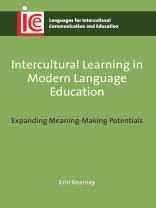Winner of the 2015-16 Kenneth W. Mildenberger Prize awarded by the Modern Language Association
Many educators aim to engage students in deeply meaningful learning in the language classroom, often facing challenges to connect the students with the culture of the language they are learning. This book aims to demonstrate that substantial intercultural learning can and does occur in the modern language classroom, and explores the features of the classroom that support meaningful culture-in-language-learning. The author argues that transformative modern language education is intimately tied to a view of language learning as an engagement in meaning-making activity, or semiotic practice. The empirical evidence presented is analyzed and then linked to both the theorizing of culture-in-language-teaching and to practical concerns of teaching.
Зміст
1. The Challenges of Addressing Culture in Modern Language Education
2. The Culture Learning Target: Engagement with Meaning Potentials
3. Creating and Investigating Intercultural Worlds in a Modern Language Classroom
4. Understanding Signification and Interpretive Acts through Engagement with Cultural Representations
5. Realizing Meaning Potentials through Narrative Writing
6. Sense-Making in a Web of Meanings: Implications for Theory, Research and Practice
References
Про автора
Erin Kearney is Assistant Professor of Foreign and Second Language Education at the State University of New York at Buffalo. She is interested in cultural dimensions of foreign and second language teaching and learning, as well as language teacher development and education, early foreign language learning and language awareness, and classroom discourse and interaction in L2 settings.












